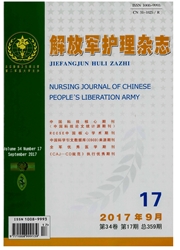

 中文摘要:
中文摘要:
目的探寻居民自我药疗决策行为的环节及可能发生的风险,以提高居民在自我药疗过程中的安全意识,为相关部门提出降低自我药疗风险的策略提供依据。方法采用现象学研究方法,对10名上海市农村居民就自我药疗行为及风险进行半结构式访谈,并采用Colaizzi的现象学分析法进行资料处理与分析。结果自我药疗决策行为包括药物获取、药物使用及药效自评3个环节。不合理的自我药疗可导致掩盖严重病情、延误治疗、引发严重的不良反应、使疾病恶化甚至威胁生命等风险,且可影响个人履行家庭职责,增加就医成本和加重家庭的经济负担。讨论自我药疗是一个完整的决策过程,必然存在一定的风险,且任何一个环节中出现差错均会导致风险的发生。在保证合理安全的自我药疗中,获取正确的药物是其前提,正确地使用药物是关键,注意用药后效果评价及正确的不良反应处理是保障。
 英文摘要:
英文摘要:
Objective To explore the steps and risks of self-medication decision-making behaviors,so as to improve the safety awareness of residents and provide a basis for the government to develop the policies to lower the risks of self-medication.MethodsPhenomenological research method was used to conduct a semi-structured interview in 10 persons in Shanghai rural areas upon their self-medication decision-making behaviors and risks.The data were analyzed with Colaizzi's phenomenological analysis.ResultsThere were three steps of self-medication,including drug access,drug use and drug effect evaluation.Unreasonable self-medication may cover up serious illness,result in delays in treatment,produce serious adverse reactions,cause disease progression even life-threatening,and increase the family burden.ConclusionSelf-medication is a decision-making process,where any step errors may lead to risks.To decrease the risk of self-medication,both medical institutions and the residents should think highly of the three steps:getting right drugs serves as the precondition,correct use of drugs as the key,and exact detection of drug effects and adverse reactions as the assurance.
 同期刊论文项目
同期刊论文项目
 同项目期刊论文
同项目期刊论文
 期刊信息
期刊信息
